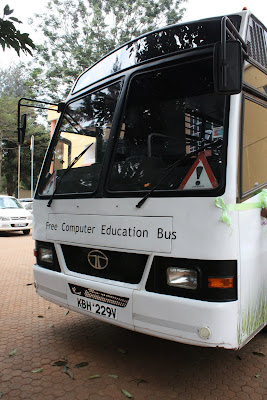www.infoafricanow.com: What is the definition of digital media?
Benjamin: There is no one definition; for me, I prefer to use the term 'digital media' broadly to include everything from digital games, to digital film, digital audio, and even interactive media like social networking websites. To me, the term is primarily applied to media that can be accessed via an internet-enabled computer.

www.infoafricanow.com: What advantages does digital media have over traditional media?
Benjamin: I prefer to speak of differences more than advantages, since many of the same differences can be disadvantages in some circumstances. Some notable differences include: reduced costs of production, and much lower cost of duplication and distribution, the ability for different social interactions (such as many-to-many, whereas traditional was limited to one-to-many), and the cause-and-effect experience of interactive media.
www.infoafricanow.com: How can Non Profit Organizations in Africa effectively employ the use of digital media?
Benjamin: Since there are hundreds of digital media forms, this is not a simple question to answer. My most general recommendation is that organizations should seek out peer organizations with whom they can experiment and grow. In other words, I believe it is more valuable for organizations to take a longer-term view, and invest in building networks of collaborators, rather than to tackle a possible solution alone. This way, organizations can learn from the success of others, and share their own successes and failures. Too often we are tempted to overlook the human structures that must be developed alongside technology implementations. Shifts in management style are especially important as we move into digital realms -- and they are difficult to design without a network of trusted peers. The media itself will continue to change over time, but a good nonprofit network can bring stability to non profits across the waves of new media.

www.infoafricanow.com: Are there disadvantages of completely relying on digital media?
Benjamin: Engineers are trained to avoid "single points of failure" in critical systems -- in other words, always have a backup plan. Sometimes this means you should have analogue backups of some key media. But even when you have a backup plan, there are always tradeoffs in using digital media. For example, digital media may aggrevate generational divides, since older people are sometimes intimidated about learning new systems. Furthermore, valued digital media can be lost entirely if adequate backup copies are not made regularly and kept in isolation (ideally at a different physical location). These are just two disadvantages -- of course, there are many more.
www.infoafricanow.com: What advice would you give to non profits which are considering the use of digital media?
Benjamin: First, be proud that you're considering taking this risk. Too many organizations act as if digital media is either a guaranteed savior (and jump in too quickly) or else inapplicable (and overlook important opportunities). In fact, digital media is one of the fastest changing areas in our modern world, and so I think it should be considered regularly for both advantages and disadvantages. If you're looking for an overview of how digital media is changing the kind of skills we all need to know (not just kids!) check out this white paper by Henry Jenkins: http://www.newmedialiteracies.org/files/working/NMLWhitePaper.pdf And if you're looking for a more applied strategy guide, check out: http://www.idealware.org/reports/nonprofit-social-media-decision-guide ...but keep in mind that the African context is not the primary focus for either of these articles, and is often very different. Such differences underscore the importance of networking with other peer non profits in Africa which can help translate and directly apply these insights.














